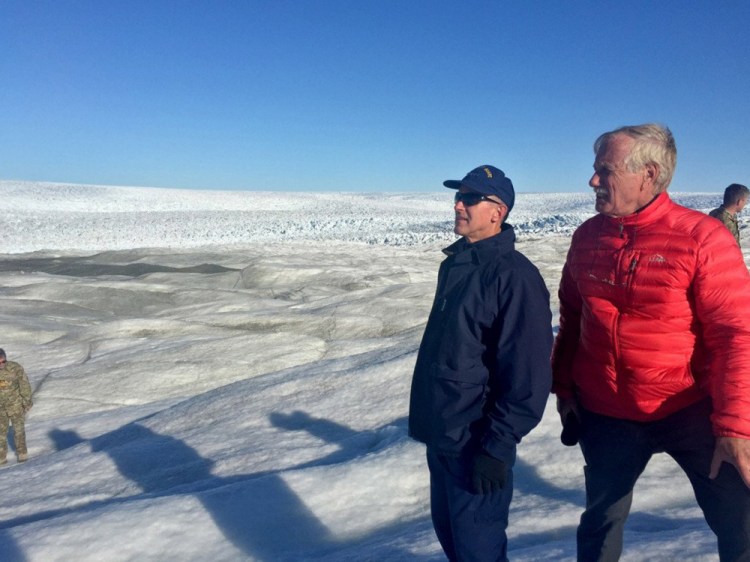The leaders of the Arctic Council will meet this week in Portland to discuss challenges facing one of the last great uncharted regions of the world, marking the first time the intergovernmental forum has ever gathered in the United States outside Alaska.
While here, in a city 1,500 miles south of the Arctic Circle, top officials of the world’s eight Arctic countries, as well as representatives from the indigenous peoples that call the region home, will celebrate the council’s 20th anniversary.
The conference is expected to draw more than 250 people from around the world, including the eight member states – the United States, Canada, Denmark, Finland, Iceland, Norway, Russia and Sweden – and generate about $1 million in revenue for local hotels, restaurants and shops.
With its shipping connections to the North Atlantic through Eimskip, and its rich maritime history and shared fisheries, Maine is an Arctic state that has much in common with Alaska, even if it is not physically located within the Arctic Circle, said U.S. Sen. Angus King of Maine.
“This is outstanding news,” King said. “Maine will now play a central role in the important Arctic Council conversations about how a changing environment in the High North can foster cooperation, increase commerce and help cultivate greater economic opportunity.”
At this week’s meeting, which will be held behind closed doors, senior officials will discuss the council’s work to address environmental issues, such as black carbon emissions and oil pollution prevention, and promote sustainable development in the Arctic.
The council holds a full conference every two years, but its senior officials meet twice a year. The last senior officials meeting was held in March in Alaska, where the United States has held its previous meetings when it hosted the council.
The United States is ending its two-year rotating chairmanship of the council. The last time it led the council was from 1998 to 2000. It is preparing to hand its leadership over to Finland next year. Finland is scheduled to unveil its plan for its chairmanship this week.
The council was founded in September 1996 with the signing of the Ottawa Declaration after the leaders of the Arctic nations gathered at Finland’s request to discuss the challenges facing the Arctic, which lacks any one centralized government to set policy.
The council was created to promote intergovernmental cooperation and coordination among the Arctic states, but it does not set policies or enact laws on its own, instead adopting policies, guidelines and recommendations by consensus among its member nations.
Member nations decide whether to enforce council decisions through regulation or legislation.
But that may be changing. In 2013, council ministers adopted a vision statement that urged the expansion of the council’s role from shaping policy to making it. Ambassador David Balton, the head of the senior officials group, said he thinks this will happen in the coming years.
Balton said he thinks the council’s work on the Arctic Ocean, which is essentially a new ocean as warming temperatures cause the ice to recede, to be especially fruitful and an area where the council can make a significant, positive impact in the future.
Most of the council’s work is carried out through its committees, which focus on topics ranging from protection of the marine environment to emergency prevention. The groups publish research that members can use to promote Arctic legislation at home.
The council is explicitly barred from discussing military security in its founding document.
The council has also helped negotiate two important legal agreements between the Arctic states. In 2011, the states inked a deal to cooperate on maritime search and rescue, and in 2013, they adopted a plan to prevent and respond to oil spills.
Send questions/comments to the editors.



Comments are no longer available on this story